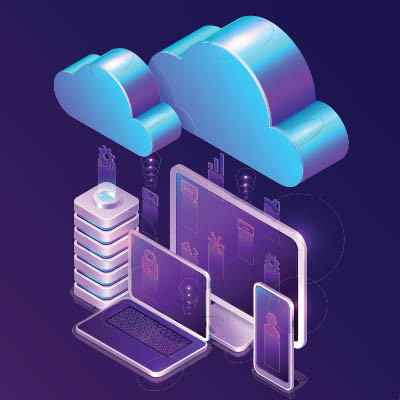Is your business ready to grow as we head into 2026? You may have heard that data is what fuels the decisions that lead to growth, but without a focus on the right types of data, you could be floundering and playing catch-up. Today, we’re sharing three types of data that your business can use to dominate in 2026, as well as solutions to help you collect it.
Datalyst Blog
We’ve seen our fair share of convenience vs. security trade-offs, but few consumer devices sit at the center of that Venn diagram quite like the Ring camera. To the average user, it’s a doorbell that significantly reduces package thieves. To those of us that work with technology, it’s a sophisticated Internet of Things (IoT) sensor with a direct, persistent uplink to one of the world’s largest cloud infrastructures.
Most of us have at least heard that an ounce of prevention is worth a pound of cure. In other words, proactivity is pretty much always the better strategy. Despite this, we’ve observed that many businesses still avoid investing in their IT until something breaks—the exact opposite of proactivity—and wind up losing in terms of downtime, recovery time, and reputation, along with the financial implications these factors introduce.
This is precisely why we’ve designed our services to serve as preventative measures against the root causes of downtime, helping you be more proactive and reduce overall costs.
Remember tape backup? For some SMBs who have moved on, this form of data backup is a clunky and frustrating relic of the past. But if you aren’t remembering it and are instead still dealing with it, you might be experiencing some operational frustrations of your own. Today, we want to cover a better solution—one that takes the unpredictability out of business continuity.
Did you know that the world’s most powerful supercomputer, Frontier, can perform over a quintillion calculations per second? That's a 1 with 18 zeros after it! This incredible power is what fuels the AI tools we're all starting to use.
However, as the old saying goes, "with great power comes great responsibility." While AI can be a game-changer for businesses, it also opens up a new can of worms when it comes to data security. Many businesses are unknowingly putting their most sensitive information at risk by using public AI models.
The Internet of Things is not a futuristic concept; it's a fundamental part of many modern businesses. IoT devices generate a wealth of data that can be used in several ways. Unfortunately, deploying IoT devices isn't enough. To get the most out of your IoT investments and ensure a strong ROI, you need a smart, strategic approach. Here are the best strategies businesses can use to get the most out of their IoT investments.
It’s everyone’s worst nightmare—checking your pockets or purse, then checking them again, trying to feel around for your smartphone, but it’s not there. Where did you leave it, or where did it fall out? Or worst of all, did someone steal it? Regardless of how you lost your smartphone, you need to take these three simple steps to ensure whoever finds it can’t steal your data.
In the movie Moneyball, Billy Beane and the Oakland A's changed baseball forever. Faced with a tiny budget in the early 2000s, Beane ignored traditional scouting and used data to find talented, undervalued players. This sabermetrics approach allowed a small-market team to consistently beat rivals with much bigger budgets, proving that data, not just money, can lead to success.
Today, those same principles apply to every business. In a competitive world, companies of all sizes and industries can use data to make smarter decisions, optimize resources, and build a stronger business for less.
A backup is mandatory for any business, but not all backups are the same. You’ll want to be prepared for more than just a simple server crash; you’ll need geographical redundancy that can protect your business even in the face of disasters that destroy your servers or physical location. Yes, local backups are helpful, but you’ll need the power of geographical redundancy to overcome the most horrific disasters that could strike your business.
There are times when you might make changes to a file, only to wish to revert back to the previous version. Sometimes you’ll accidentally overwrite an important existing file, and sometimes someone else will make edits to a document without permission. All of these situations warrant version control, or having the ability to view different iterations of a file. Here’s why you need to have version control in place, as well as what’s at stake if you don’t have it turned on.
Data breaches are no joke, and they can be so severe that businesses have a hard time bouncing back. Despite the danger, you can somewhat predict when you are at risk of a data breach, and certain actions can be taken to keep them from being fatal (or prevent them entirely). Today, we want to examine three of the common ways data breaches happen and what you can do about them.
There are a lot of file types that are put to use in the modern workplace, all with their own importance. Let’s review what the different file extensions—the little series of letters after the file name—mean, and how they influence how you can use a given file.
We need to talk about something that is as exciting as watching water boil, but it might just save your entire business one day: backing up your data.
I know, I know. You're busy doing your thing, closing deals, and you’re busy. The last thing on your mind is where your files are outside of your server. The truth is, it’s not very interesting, but it sure is important.
Summer is here, and with it comes the rest and relaxation that warm weather encourages. That said, summer is not a time to let up on your cybersecurity awareness. Today, we’ll share how you can both enjoy the summer season without putting your security at risk in the process.
Do you ever find your eyes glazing over at the sight of a sprawling spreadsheet? That feeling of being overwhelmed by a sea of data is universal… but what if you could instantly start making sense of it all with just one click?
Both Microsoft Excel and Google Sheets offer powerful, yet often overlooked, features to help you quickly analyze and visualize your data. In Excel, this is called the Quick Analysis tool. While Google Sheets doesn't have a single button with the same name, it provides the same powerful capabilities through its intuitive menus and the AI-powered Explore feature. Let's dive into how you can leverage these tools to transform your data from a source of sighs to a font of insight.
Running a small or medium-sized business is difficult enough without having to worry about cyber threats all the time. If you haven’t updated your security systems in a while, your infrastructure could be at risk. In fact, when considering IT security, we recommend adopting zero trust as a security measure, and we’ll explain why.
Modern technology practically revolves around USB, but what do you really know about what goes on inside the cables and connectors? Let’s explore some of these minute details and see if we can achieve a new appreciation for this technology.
The cloud is one of those solutions that you’re either taking full advantage of or you have yet to experience the true benefits it can provide. If you’re still on the fence about cloud migration, we have news for you; this decision is actually costing you in the long term. We recommend you explore the possibility of cloud migration by considering why you’re so worried about it in the first place (and why that doesn’t make sense).
Is your business data hard to get to, like it's locked away and only a few people have the key? That can really hold your business back. Imagine if everyone on your team could easily use all the data you create and collect to make better decisions, faster. That's what data democratization is all about, and it’s a powerful tool. In today’s blog we briefly discuss how it works.
Cybercriminals are in the business of ripping you off, make no mistake about it. They’ll do what they can to trick you and steal your hard-earned cash. Thankfully, there are common and recurring trends you can look for that expose these fraudsters for what they really are.




















